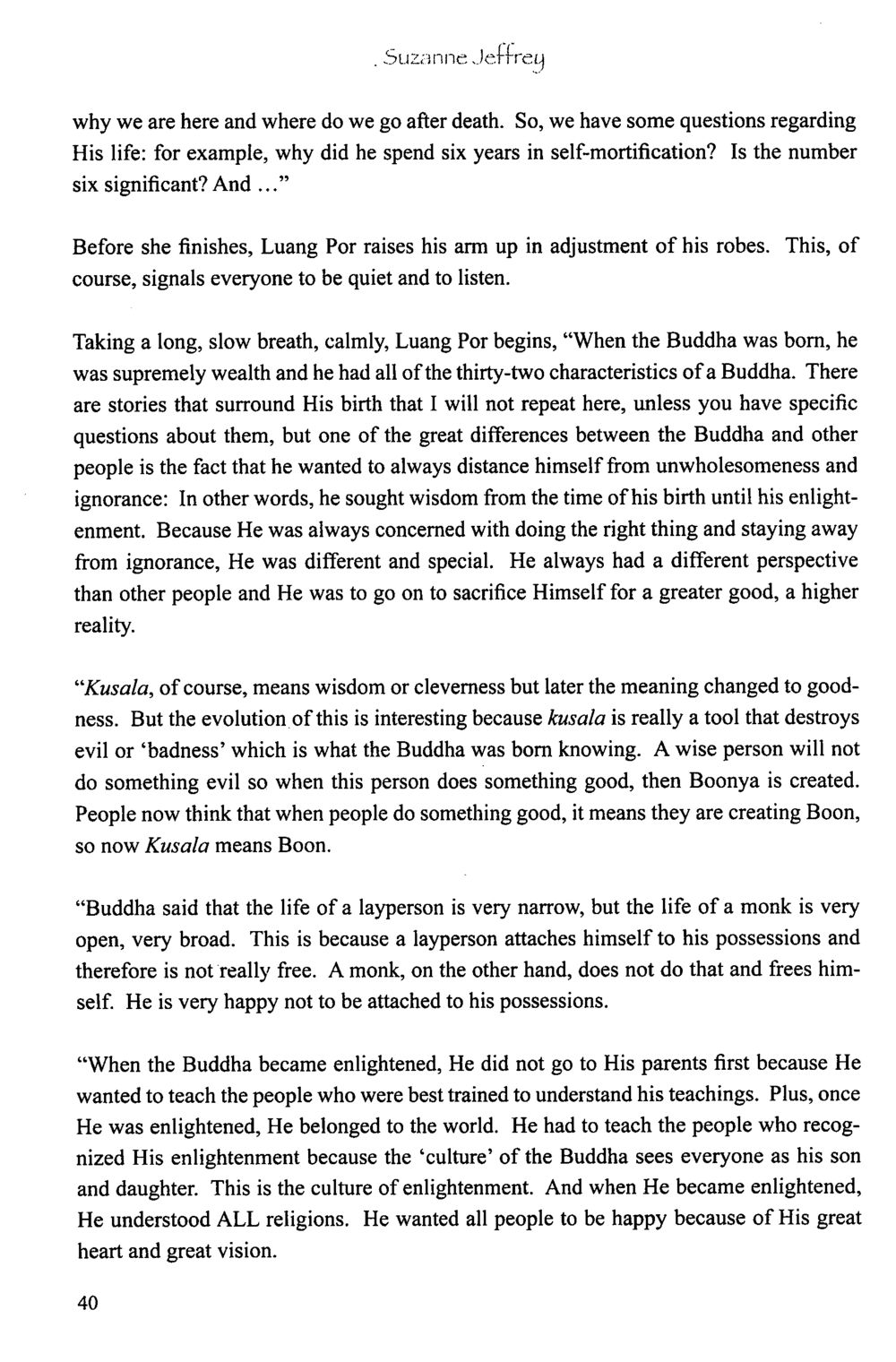The Teachings of the Buddha: Understanding Enlightenment : หน้า 45/164
The Meeting with a Dhamma Master : หน้า 45/164 Explore the profound teachings of the Buddha on wisdom, attachment, and enlightenment. Discover the significance of his life and the journey towards greater understanding.
0 ครั้ง

สรุปเนื้อหา
In this teaching, Luang Por discusses the significance of the Buddha's life and his journey towards enlightenment. Born into wealth and possessing unique qualities, the Buddha sought wisdom from an early age. He distanced himself from ignorance and aimed for a greater good. His teachings emphasize the importance of wisdom and goodness (Kusala and Boonya) and highlight the contrast between the lives of laypersons and monks. The Buddha's commitment to sharing his enlightenment with the world, irrespective of religious boundaries, demonstrates his universal compassion and understanding.
หัวข้อประเด็น
-Buddha's teachings
-significance of wisdom
-layperson vs monk lifestyle
-attachment to possessions
-universal compassion
ข้อความต้นฉบับในหน้า
Suzanne Jeffrey
why we are here and where do we go after death. So, we have some questions regarding His life: for example, why did he spend six years in self-mortification? Is the number six significant? And ...
Before she finishes, Luang Por raises his arm up in adjustment of his robes. This, of course, signals everyone to be quiet and to listen.
Taking a long, slow breath, calmly, Luang Por begins, “When the Buddha was born, he was supremely wealth and he had all of the thirty-two characteristics of a Buddha. There are stories that surround His birth that I will not repeat here, unless you have specific questions about them, but one of the great differences between the Buddha and other people is the fact that he wanted to always distance himself from unwholesomeness and ignorance: In other words, he sought wisdom from the time of his birth until his enlightenment. Because He was always concerned with doing the right thing and staying away from ignorance, He was different and special. He always had a different perspective than other people and He was to go on to sacrifice Himself for a greater good, a higher reality.
“Kusala, of course, means wisdom or cleverness but later the meaning changed to goodness. But the evolution of this is interesting because kusala is really a tool that destroys evil or ‘badness’ which is what the Buddha was born knowing. A wise person will not do something evil so when this person does something good, then Boonya is created. People now think that when people do something good, it means they are creating Boon, so now Kusala means Boon.
“Buddha said that the life of a layperson is very narrow, but the life of a monk is very open, very broad. This is because a layperson attaches himself to his possessions and therefore is not really free. A monk, on the other hand, does not do that and frees himself. He is very happy not to be attached to his possessions.
“When the Buddha became enlightened, He did not go to His parents first because He wanted to teach the people who were best trained to understand his teachings. Plus, once He was enlightened, He belonged to the world. He had to teach the people who recognized His enlightenment because the ‘culture’ of the Buddha sees everyone as his son and daughter. This is the culture of enlightenment. And when He became enlightened, He understood ALL religions. He wanted all people to be happy because of His great heart and great vision.
หน้าหนังสือทั้งหมด

1

2

3

4

5

6

7

8

9

10

11

12

13

14

15

16

17

18

19

20

21

22

23

24

25

26

27

28

29

30

31

32

33

34

35

36

37

38

39

40

41

42

43

44

45

46

47

48

49

50

51

52

53

54

55

56

57

58

59

60

61

62

63

64

65

66

67

68

69

70

71

72

73

74

75

76

77

78

79

80

81

82

83

84

85

86

87

88

89

90

91

92

93

94

95

96

97

98

99

100

101

102

103

104

105

106

107

108

109

110

111

112

113

114

115

116

117

118

119

120

121

122

123

124

125

126

127

128

129

130

131

132

133

134

135

136

137

138

139

140

141

142

143

144

145

146

147

148

149

150

151

152

153

154

155

156

157

158

159

160

161

162

163

164
หนังสือที่เกี่ยวข้อง
Load More
